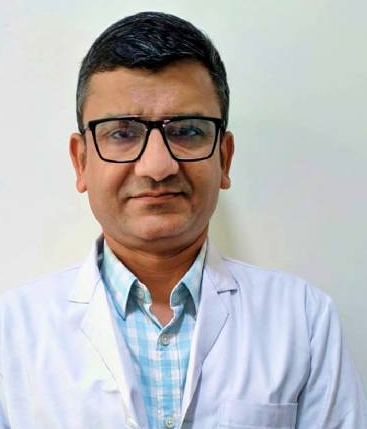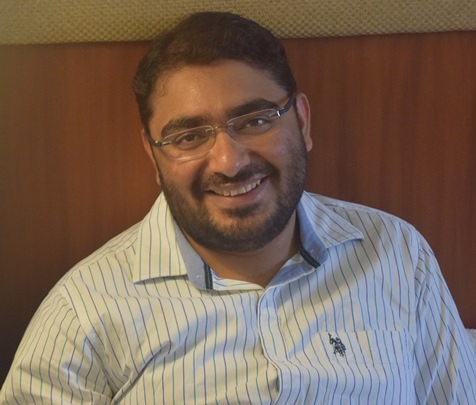Rhinoplasty (Nose Job) : Benefits, Procedure, Expectations and Complications
Dr. Priyanka Sharma

Treatment Duration
60 Minutes
------ To ------120 Minutes
Treatment Cost
₹ 65,000
------ To ------₹ 1,50,000

A nose procedure like rhinoplasty or nose job is a globally sought-after surgical procedure to alter the shape of the nose. It targets both aesthetic enhancement and functional improvement in breathing.
Rhinoplasty in India among patients presents a broad range of reasons for consideration. The most common problem is having a nose that lacks definition, with little projection and a broad bone and cartilage structure.
Read about the rhinoplasty procedure, its benefits, procedure, risks, complications, etc.
Procedure Name | Rhinoplasty |
Alternative Name | Nose job. Nose reshaping surgery |
Conditions Treated | Deviated septum, Altering the nose bridge width, Reshaping the nose tip, Straightening a crooked nose |
Benefits | Improved appearance, Boosted confidence, Correct breathing problems, Injury correction, Fix congenital defect |
Treated by | Plastic Surgeon |
You can check Rhinoplasty (Nose Job) Cost here.
What is Rhinoplasty?
The structure of the nose can be modified through rhinoplasty, addressing aspects of bone, cartilage, and skin as needed. Consulting with a surgeon is crucial to determining the suitability of rhinoplasty for individual needs and understanding the potential outcomes it can deliver.
Correct selection of surgical patients and thoughtful preoperative analysis and planning are critical steps for enhancing rhinoplasty results and preventing secondary procedures. The types of nose job includes:
Open Rhinoplasty: Involves making a small incision on the columella (the strip of skin between the nostrils) to access the nasal structures, providing better visibility and control during surgery.
Closed Rhinoplasty: Utilizes incisions inside the nostrils, leaving no external scars, suitable for minor adjustments and faster recovery.
Revision Rhinoplasty: Corrective surgery performed to address complications or unsatisfactory results from a previous rhinoplasty procedure.

Tip Rhinoplasty: Focuses on refining the nasal tip, adjusting its size, shape, and projection to achieve desired aesthetic outcomes.
Septorhinoplasty: Combines nasal reshaping (rhinoplasty) with correcting a deviated septum (septoplasty), addressing cosmetic concerns and functional issues such as breathing difficulties.
Liquid Rhinoplasty: A non-surgical procedure using injectable fillers to reshape and contour the nose, offering temporary results without incisions or downtime.
Anatomy and Physiology of the Nose
The nose, an organ for breathing and smelling, comprises various structures that work together seamlessly. It serves as the primary entry point for air into the body, facilitating respiration and oxygenation of tissues.
Beyond its functional role, the nose contributes significantly to facial aesthetics and influences how a person sounds when speaking. As a natural filter, the nose cleanses incoming air, removing particles and allergens to maintain respiratory health.
Specialised cells in the nasal cavity detect various odours, providing a sense of smell critical for experiencing the world around us. The anatomy of a nose is:
Bone: The top of the nose is formed by bone, providing structural support and defining its shape.
Hair and Cilia: Inside the nose, tiny hairlike structures called cilia trap dirt and particles, aiding in filtering the air breathed.
Lateral Walls: Made of cartilage and covered in skin, the outer walls form the framework of the nose, including the nostrils and nasal cavities.
Nasal Cavities: Two hollow spaces within the nose allow air to flow in and out, lined with mucous membranes that help humidify and filter the air.

Nostrils: These openings on the face lead to the nasal cavities, allowing air to enter and exit the respiratory system.
Septum: Comprising of bone and firm cartilage, the septum runs down the centre of the nose, separating the nasal cavities and providing structural integrity.
Sinuses: Four air-filled pockets connected to the nasal cavities produce mucous, moisturising the nasal passages and trapping harmful particles.
Rhinoplasty (Nose Job) Videos by HexaHealth
Expert Doctors (10)
NABH Accredited Hospitals (10)


Need for Rhinoplasty
Individuals seeking rhinoplasty should have complete facial growth. This is because changes in facial structure during adolescence and early adulthood can impact the appearance and function of the nose over time. However, exceptions exist for pediatric patients with facial birth defects like cleft palate.
Additionally, candidates should be in good health and non-smokers to minimise risks associated with poor blood flow and tissue damage. Rhinoplasty may be considered for teenagers with full parental consent and a thorough understanding of the procedure.
Ideally, girls should be at least 15 or 16 years old, while boys should be at least 17 or 18 before surgery.
Medical Reasons for Rhinoplasty
Various medical conditions like injuries, chronic allergies leading to nasal inflammation, burns, broken noses, and deformities may require rhinoplasty for functional and cosmetic restoration. The medical conditions for nose job include:
Deviated Septum/Chronic Sinus Problems: A deviated septum, a condition where the nasal septum is displaced to one side, can lead to chronic sinus problems, including congestion and nasal allergies, impacting breathing and sleep quality. A nose job becomes necessary to correct the deviated septum, alleviate breathing difficulties, and address associated symptoms like snoring, congestion, and sleep apnea.
Cleft Palate or Cleft Lip: It is a birth defect that affects facial harmony and causes difficulties in eating if left untreated. Rhinoplasty is crucial to correct the cleft palate or lip, improving facial appearance and restoring normal function, especially in children.

Aesthetic Reasons for Rhinoplasty
An ideal nose shape, size, and contour contribute significantly to overall facial harmony and appearance. For cosmetic purposes, nose reshaping aims to enhance facial aesthetics by addressing specific appearance concerns and achieving proportional balance.
Rhinoplasty for cosmetic purposes can involve:
Narrowing or widening the nostrils
Altering the nose bridge width
Reshaping the nose tip
Straightening a crooked nose
Adjusting the angle between the upper lip and nose enhances facial symmetry and proportion
Benefits of Rhinoplasty
Nose job isn't just about enhancing appearance. It also targets improving or maintaining nasal function, mainly if breathing difficulties occur due to obstruction. It involves adjusting internal nasal structures to address functional issues.
Below are the benefits of undergoing the procedure:
Improved Appearance: A nose job can enhance the shape and size of the nose. It results in a more symmetrical and aesthetically pleasing facial profile. Some people seek rhinoplasty because they are dissatisfied with the appearance, size, or angle of their nose.
Boosted Confidence: By addressing nasal imperfections, rhinoplasty can help individuals feel more confident. This can improve their self-confidence by being more comfortable with their appearance. The surgery addresses issues like a prominent nasal hump or a drooping or overly elevated nasal tip.
Correct Breathing Problems: In some cases, rhinoplasty can correct structural issues within the nose that obstruct airflow. It improves breathing and overall respiratory function.
Injury Correction: The procedure can address nasal deformities resulting from trauma or injury, restoring function and appearance.
Fix Congenital Defects: Rhinoplasty can address congenital nasal abnormalities. This can include a deviated septum or cleft lip.

Protocol Before and On the Day of Rhinoplasty
The surgeon captures images of the nose from various angles. These photos are visual aids for rhinoplasty before and after comparisons and guide discussions about surgical goals.
Before Rhinoplasty
Prior to the nose job surgery, the medical team follow protocol for a smooth procedure.

On the Day of Rhinoplasty
After scheduling the surgery, arrange for transportation home if it's an outpatient procedure. You can expect the following on the day of the surgery:

Rhinoplasty Procedure
A nose job takes 60-120 minutes. The surgeon evaluates the patient's nasal structure, skin thickness, and overall facial features to determine the most suitable approach for achieving the desired results.
The steps of the procedure are:
Anaesthesia: Before the procedure begins, the patient is administered general anaesthesia. It ensures they are comfortable and pain-free throughout the surgery.
Incisions: Depending on the type of rhinoplasty (open or closed), the surgeon makes incisions either inside the nostrils (closed) or across the columella (open) to access the underlying nasal structures.
Reshaping: The surgeon then reshapes the bone, cartilage, and tissue of the nose to achieve the desired size, shape, and contour. It addresses any aesthetic or functional concerns discussed during the consultation.
Closure: Once the reshaping is complete, the incisions are closed using sutures or surgical tape, ensuring minimal scarring and a natural-looking result.
Open Rhinoplasty Procedure

Closed Rhinoplasty Procedure

Septorhinoplasty Procedure

Expectation After Rhinoplasty
Following the surgery, individuals may experience short-term swelling or discolouration around the eyelids for approximately 2 to 3 weeks. Nasal swelling may endure for an extended period, possibly up to a year.
Reducing sodium intake can aid in alleviating swelling more quickly. It's advised to refrain from applying ice or cold packs to the nose following the procedure.
Recovery Process at Hospital
Recovery of every individual process may vary slightly. Closely follow the specific instructions of the surgeon for the best outcome.
After rhinoplasty surgery, patients are advised to rest in bed with the head elevated above their chest to minimise bleeding and swelling. The patient may experience some discomfort, swelling, and possibly nausea.
Nasal congestion may occur due to swelling or from the presence of splints inserted during the procedure. After shifting the patient to the general ward, the following can be expected in the immediate post-surgery 24-hour period:
Internal Bandages and Splint: Internal bandages typically remain in place for 1 to 7 days post-surgery, while a splint may be taped to the nose for about a week to provide protection and support.
Drip Pad: Expect bleeding and mucous drainage for a few days following surgery or after removing the dressing. A drip pad, secured with tape, may be placed under the nose to absorb drainage. Ensure the drip pad is not applied tightly against the nose and change it as the surgeon instructs.
Vitals Monitored: Close monitoring of vitals like blood pressure, body temperature, etc., in the recovery room by medical staff.
Medications: Pain medication will be provided to manage any discomfort.
At-home Recovery
Patients may receive additional instructions to reduce the risk of bleeding and swelling. Adhere to the guidelines below for several weeks following the surgery:
Nasal Care: Refrain from blowing your nose to facilitate healing.
Sneezing and Coughing: Keep your mouth open when sneezing or coughing to minimise pressure on the nose.
Oral Hygiene: Brush your teeth gently to prevent excessive upper lip movement.
Facial Expressions: Limit certain facial expressions, such as smiling or laughing, to prevent strain on the surgical area.
Physical Activities: Avoid intense exercises like aerobics and jogging to prevent bleeding and swelling.
Bathing: Opt for baths instead of showers while nose bandages are on to ensure proper care.
Diet: Incorporate high-fibre foods like fruits and vegetables to avoid constipation, which can strain the surgery site.
Clothing: Wear clothes with front fasteners and avoid pulling clothing over your head to prevent giving extra pressure to the nose.
Eyewear: Avoid resting eyeglasses or sunglasses on your nose for at least four weeks post-surgery to prevent pressure on the nose. Consider using cheek rests or taping the glasses to your forehead until the nose fully recovers.
Don'ts

Do's

First Follow-up
After rhinoplasty, the first follow-up appointment usually occurs within the first week, typically around 5 to 7 days post-surgery. During this appointment, the surgeon examines the healing progress and removes any external splints or internal gauze.
Any concerns or questions of the patient are addressed regarding their recovery. This initial follow-up helps ensure the patient is healing properly and experiencing a smooth recovery process.
Risks and Complications of Rhinoplasty
Before consenting to rhinoplasty, the surgeon will thoroughly discuss risks and other concerns, ensuring the patient makes an informed decision. The risks and complications can be:
- Anaesthesia Risks: There's a slight chance of allergic reactions or breathing issues related to anaesthesia during the surgery.
- Infection: While uncommon, there is a risk of developing an infection at the surgical site, which may require antibiotics or further treatment.
- Sensory Changes: Following the procedure, the patient may experience temporary numbness or pain in the area around the nose.
- Functional Complications: Post-surgery, one might experience temporary or, in rare cases, permanent difficulty breathing through the nose due to swelling or structural changes.
- Nasal Septal Perforation: Though infrequent, this involves a hole in the nasal septum, potentially requiring additional surgery for repair.
- Wound Healing Issues: In some instances, wounds may heal inadequately, leading to visible scarring or dissatisfaction with the aesthetic outcome. Post-surgery, temporary skin discolouration and swelling are common, gradually subsiding over time.
- Aesthetic Concerns: Despite careful planning, the final aesthetic outcome may not meet expectations, requiring additional adjustments or revisions.

When to call a doctor?
Knowing when to seek medical attention after rhinoplasty surgery is crucial to ensure a smooth recovery. If you experience these symptoms, contact your surgeon promptly for further evaluation and appropriate management:
Persistent pain
Bleeding
Breathing difficulties
Infections
Fever with chills
Risk of Delay in Rhinoplasty
Delaying rhinoplasty may prolong dissatisfaction with one's nasal appearance. It leads to negative psychological effects such as low self-esteem and body image issues. Functional problems like a deviated septum or breathing difficulties can continue to impede nasal airflow and quality of life.
Conditions such as chronic sinusitis or nasal deformities may worsen over time if left untreated. It leads to more complex surgical interventions and increased risks during rhinoplasty.
Cost of Rhinoplasty in India
The nose correction surgery costs from ₹ 65,000 to ₹ 1,50,000. It depends on factors like:
Technique Used: The choice between open or closed rhinoplasty techniques and the complexity of a revision procedure can impact the price.
Surgeon's Fee: The fee charged by the plastic surgeon performing the rhinoplasty is a significant factor.
Diagnostic Procedures: Any diagnostic tests or imaging studies conducted before the surgery to assess nasal anatomy and health may contribute to the total cost.
Hospital of Preference: The choice of hospital or surgical facility where the procedure is performed can affect the overall cost, with higher-end facilities typically charging more.
Hospitalisation Costs: Expenses related to hospitalisation, including admission, discharge, and room rent, are included in the bill.
Prescribed Medication: The cost of medications prescribed for pain management, infection prevention, and other post-operative needs is an additional expense.
Post-surgery Support Devices: Splints, nasal packing, and other supportive devices provided after surgery to aid healing may add to the overall cost.
Follow-up Consultations: The number and frequency of follow-up appointments with the surgeon to monitor healing progress and address concerns can affect the total rhinoplasty cost.
Procedure | Cost |
Rhinoplasty | ₹ 65,000 to ₹ 1,50,000 |
Takeaway
The nose is made up of delicate cartilage and bone structures. Rhinoplasty is a medical procedure that can alter the size, shape, or proportions of the nose. Apart from cosmetic reasons, it's often performed to address injury-related issues, correct birth defects, or enhance breathing.
Reach out to HexaHealth for a seamless and patient-centred nose job experience. We prioritise the comfort of the patient above all else. Plus, we make nose reshaping surgery financially accessible by providing free EMI options. Get in touch with us today!
Suggested Reads
Frequently Asked Questions (FAQ)
What is rhinoplasty, and how does it work?
Rhinoplasty is a surgical procedure to reshape the nose for aesthetic or functional purposes. Surgeons modify the bone and cartilage to achieve the desired shape and improve breathing if necessary.
How much does rhinoplasty cost?
The cost of rhinoplasty in India varies from ₹ 65,000 to ₹ 1,50,000. It depends on factors such as the expertise of the surgeon, the location of the hospital, and the complexity of the procedure.
Insurance typically does not cover the cost unless the surgery is performed for medical reasons such as correcting breathing issues.
What are the risks and complications associated with rhinoplasty?
After surgery, skin and soft tissue issues can include shrinkage, scarring, loss of sensation, and cysts from displaced mucosa or granulomas. Swelling after surgery can be due to the type of bone-cutting technique used.
For example, procedures like percutaneous osteotomies cause less damage but potentially leave visible scars.
What is rhinoplasty recovery time?
After the procedure, your first recovery phase lasts about seven to 10 days. But it may take up to two to three months to fully recover.
Can rhinoplasty fix a deviated septum?
Yes, rhinoplasty can correct a deviated septum by straightening or repositioning the nasal septum. It improves breathing and nasal function. This procedure is often combined with cosmetic changes to the nose if desired.
What are the different types of nose reshaping procedures?
The types of rhinoplasty procedures are as follows:
Open Rhinoplasty: Involves making incisions outside the nose, allowing for greater access and visibility during surgery.
Closed Rhinoplasty: The incisions are made inside the nostrils, resulting in no visible external scars.
Revision Rhinoplasty: Corrective surgery to address complications or unsatisfactory results from a previous rhinoplasty.
Functional Rhinoplasty: Focuses on improving nasal function, such as correcting a deviated septum or widening nasal passages for better breathing.
Cosmetic Rhinoplasty: Primarily aimed at enhancing the appearance of the nose. It is done by altering its size, shape, or proportions.
How do I choose the right rhinoplasty surgeon?
You can follow the steps below to choose the right rhinoplasty surgeon:
Look for surgeons who specialise in rhinoplasty and have extensive experience in both cosmetic and functional nasal surgery.
Ensure the chosen surgeon is board-certified and affiliated with reputable medical associations.
Read patient testimonials and reviews to gauge satisfaction and outcomes.
Review the before and after photos of the portfolio of the surgeon to evaluate their aesthetic results.
Are there non-surgical alternatives to rhinoplasty?
Yes, non-surgical alternatives to rhinoplasty include injectable fillers to alter the appearance of the nose temporarily. Thread lifts are used to refine nasal shape without surgery.
However, these options may not be suitable for all desired changes. It's important to consult with a qualified surgeon to determine the best approach for your needs.
What results can I expect from a nose job?
Rhinoplasty can enhance the appearance of your nose by improving its shape, size, and proportion to fit your facial features better. It may also address functional issues like breathing difficulties, leading to improved nasal function and overall facial symmetry.
Can rhinoplasty improve breathing problems?
Yes, rhinoplasty can improve breathing problems by correcting structural issues such as a deviated septum or narrowing of the nasal passages. It results in better airflow and nasal function.
However, discussing your concerns with a qualified surgeon helps to determine if rhinoplasty is the appropriate solution for your breathing issues.
How do I prepare for rhinoplasty surgery?
You can follow the steps below to prepare yourself before rhinoplasty surgery:
Follow your surgeon's pre-operative instructions regarding medication, diet, and lifestyle habits like smoking.
Arrange for transportation to and from the surgery centre, as you may be unable to drive afterwards.
Stock up on necessary supplies for post-operative care, such as cold packs, saline spray, and soft foods.
Ensure your home is clean and comfortable for your recovery period.
What are the common myths about rhinoplasty?
Some common myths about rhinoplasty are:
Recovery from rhinoplasty is always painful and lengthy.
Rhinoplasty can only be done for cosmetic reasons and cannot address breathing problems.
All rhinoplasty procedures leave noticeable scars.
Results from rhinoplasty are permanent and will never change over time.
If you have any queries on the procedure, please contact us for the right information. We can address all your doubts about the procedure.
Can rhinoplasty correct asymmetrical nostrils?
Yes, rhinoplasty can correct asymmetrical nostrils by reshaping and repositioning the nasal structures to create a more balanced appearance. Surgeons can address uneven nostrils to improve symmetry and aesthetic concerns.
What is the difference between open and closed rhinoplasty?
The differences are as follows:
Parameters | Open Rhinoplasty | Closed Rhinoplasty |
Incision | External | Internal |
Complexity | More | Less |
Recovery Time | Longer | Shorter |
Scarring | Small scar that fades over time | No visible scar |
Suitability | Complex cases or need for extensive reshaping | Minor to moderate corrections and aesthetic change |
Can rhinoplasty fix a crooked nose?
Yes, rhinoplasty can correct a crooked nose by reshaping the nasal structures to achieve symmetry and alignment. Surgeons can straighten the nasal bridge and tip. It improves the appearance and function of the nose.
What factors influence rhinoplasty results?
The factors influencing the rhinoplasty results are:
Surgeon's skill and experience in performing rhinoplasty procedures.
Patient's individual anatomy and tissue characteristics.
Clear communication between patient and surgeon regarding goals and expectations.
Proper pre-operative preparation and adherence to post-operative care instructions.
The healing process and individual response to surgery.
How long do rhinoplasty results last?
Rhinoplasty results are typically long-lasting and permanent. It doesn't need corrective surgery. However, subtle changes may occur over time due to ageing or tissue changes.
What is the ideal age for rhinoplasty?
The ideal age for rhinoplasty is generally after the nose has fully developed, typically around ages 15 to 17 for females.
Males can undergo after 17 years. However, it can be performed at any age if the individual is healthy.
How soon after rhinoplasty can I return to work or school?
Most people can return to work or school within 1 to 2 weeks after rhinoplasty. It depends on the extent of the surgery and individual healing. Following your surgeon's post-operative instructions helps in a smooth recovery.
More Treatment options
References
All the articles on HexaHealth are supported by verified medically-recognized sources such as; peer-reviewed academic research papers, research institutions, and medical journals. Our medical reviewers also check references of the articles to prioritize accuracy and relevance. Refer to our detailed editorial policy for more information.
- Fichman M, Piedra Buena IT. Rhinoplasty. [Updated 2023 Jun 12]. In: StatPearls [Internet]. Treasure Island (FL): StatPearls Publishing; 2024 Jan-.

- Rettinger G. Risks and complications in rhinoplasty. GMS Curr Top Otorhinolaryngol Head Neck Surg. 2007;6:Doc08. Epub 2008 Mar 14. PMID: 22073084; PMCID: PMC3199839.

- American Society of Plastic Surgeons [Internet]. American Society of Plastic Surgeons. [cited 2024 Feb 17].

- Tasman AJ. Rhinoplasty - indications and techniques. GMS Curr Top Otorhinolaryngol Head Neck Surg. 2007;6:Doc09. Epub 2008 Mar 14. PMID: 22073085; PMCID: PMC3199847.

- Raggio BS, Asaria J. Open Rhinoplasty. [Updated 2023 Jul 3]. In: StatPearls [Internet]. Treasure Island (FL): StatPearls Publishing; 2024 Jan-.

- Gupta R, John J, Ranganathan N, Stepanian R, Gupta M, Hart J, Nossoni F, Shaheen K, Folbe A, Chaiyasate K. Outcomes of Closed versus Open Rhinoplasty: A Systematic Review. Arch Plast Surg. 2022 Sep 23;49(5):569-579. doi: 10.1055/s-0042-1756315. PMID: 36159386; PMCID: PMC9507448.

- Dibelius G, Hohman MH. Rhinoplasty Tip-Shaping Surgery. [Updated 2023 Mar 1]. In: StatPearls [Internet]. Treasure Island (FL): StatPearls Publishing; 2024 Jan-.

- Bhat U, Patel B. Primary rhinoplasty: An Indian perspective. Indian J Plast Surg. 2008 Oct;41(Suppl):S9-S19. PMID: 20174548; PMCID: PMC2825123.

- Rohrich RJ, Ahmad J. Rhinoplasty. Plast Reconstr Surg. 2011 Aug;128(2):49e-73e. doi: 10.1097/PRS.0b013e31821e7191. PMID: 21788798.

- Rhinoplasty: What to expect before and after a ‘nose job’ [Internet]. Utswmed.org. [cited 2024 Feb 17].

- American society of plastic surgeons [Internet]. American Society of Plastic Surgeons. [cited 2024 Feb 17].

- Nasal surgery: Fixing form and function [Internet]. ENT Health. 2018 [cited 2024 Feb 17].

- American society of plastic surgeons [Internet]. American Society of Plastic Surgeons. [cited 2024 Feb 17].

- Nose surgery [Internet]. The Aesthetic Society. 2020 [cited 2024 Feb 17].

Last Updated on: 10 July 2024
Reviewer

Dr. Priyanka Sharma
MBBS, DNB Plastic Surgery, Training in Hand and Microvascular Surgery, Training in Hair Transplant
15 Years Experience
Dr Priyanka Sharma is a highly regarded Plastic, Reconstructive, and Aesthetic Surgeon with over 15 years of experience.
She is currently associated as a Consultant with:<...View More
Author

She has extensive experience in content and regulatory writing with reputed organisations like Sun Pharmaceuticals and Innodata. Skilled in SEO and passionate about creating informative and engaging medical conten...View More
Rhinoplasty (Nose Job) in Top Cities
Rhinoplasty (Nose Job) Cost in Top Cities
Latest Health Articles
Other Treatments in Your City




























